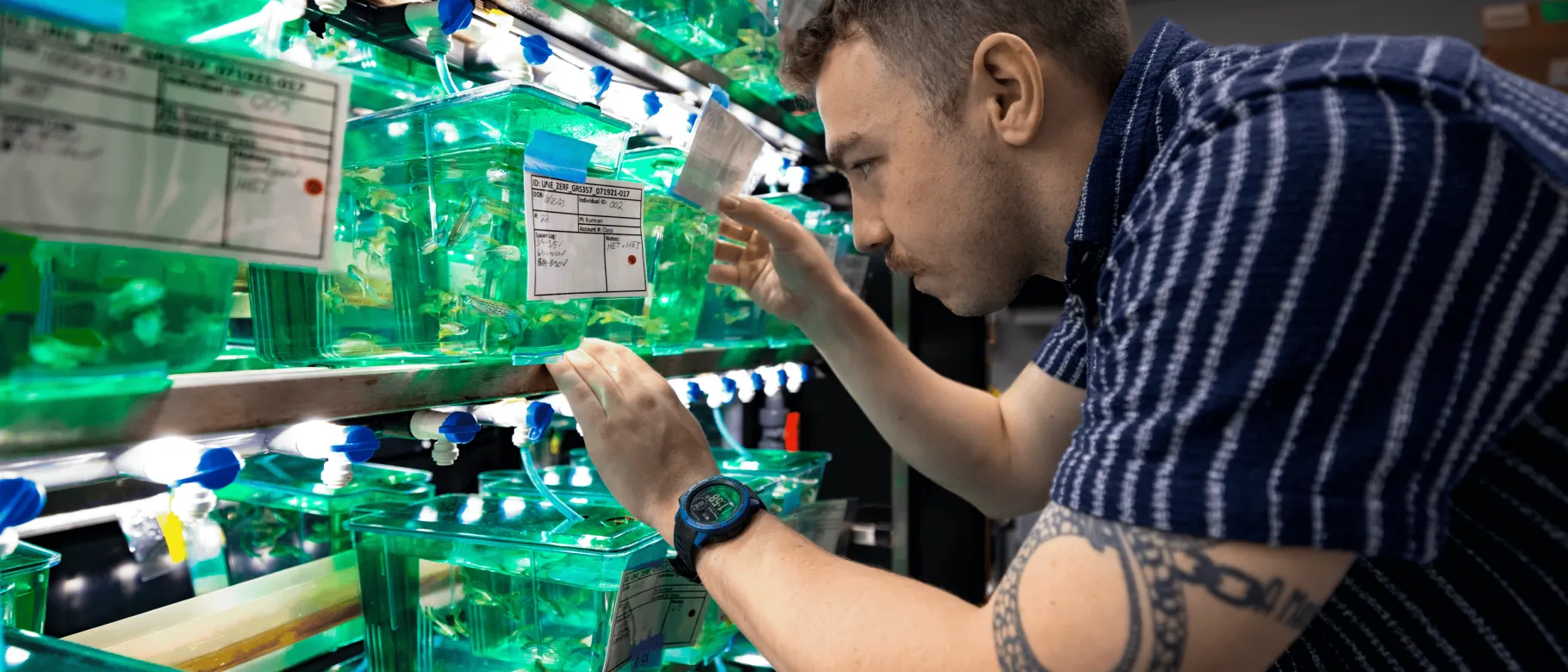UNE and Gulf of Maine Research Institute launch collaborative research accelerator
The partnership offers a systems-level investigative model that responds to fast-growing environmental and societal challenges

The University of New England and the Gulf of Maine Research Institute (GMRI) have established a new research partnership aimed at addressing pressing climate, ocean, and planetary health challenges through joint faculty research projects.
This new initiative, the UNE-GMRI Research Accelerator, provides mini-grants to support collaborative pilot studies between faculty and researchers at both institutions. The program is designed to seed research that aligns with both partners’ expertise in marine science, environmental systems, and data-driven ecological analysis, supporting projects that advance knowledge and action in the Gulf of Maine, which is one of the world’s fastest-warming bodies of water.
The University of New England is home to the region’s most robust marine science programs, with undergraduate and graduate research, innovation, and entrepreneurship embedded across its School of Marine and Environmental Programs. Portland-based GMRI develops and delivers collaborative solutions to global ocean challenges, with a regional focus on ensuring the ecosystem, economy, and communities of the Gulf of Maine region thrive amid rapid change.
Together, the partnership offers a model for systems-level collaboration that responds to fast-growing environmental and societal challenges, said Gwendolyn Mahon, provost and senior vice president for Academic Affairs at UNE.
“The challenges facing our environment and coastal communities are increasingly complex, and they demand solutions that are equally multifaceted,” Mahon said. “This partnership is a strategic example of UNE’s commitment to working across institutional and disciplinary boundaries to better understand and protect our planet.”
In its inaugural round, four teams of researchers from UNE and GMRI have been selected to receive nearly $40,000 in funding to complete projects spanning sustainable aquaculture, climate resilience, and environmental DNA detection methodologies, underscoring the value of cross-disciplinary collaboration in understanding and responding to regional and global environmental change.
Project award recipients include:
- Rex Yoon (UNE) and Kanae Tokunaga (GMRI): “Development of Sustainable and Socially Responsible Eel Fisheries and Aquaculture in Maine”
- Jennifer Brousseau (UNE) and Gayle Bowness (GMRI): “Bridging the Gap: Building Relationships and Gathering Community Perspectives on Climate Action, Process, and Progress”
- Markus Frederich (UNE) and Graham Sherwood (GMRI): “Improving eDNA Detection Probability and Spatial‐Temporal Inferences by Manipulating DNA Fragment Length”
- Patricia Thibodeau (UNE) and Jerome Pinti (GMRI): “Quantifying the Decay Rate of Lipid Sacs of Historical Calanus finmarchicus Samples Preserved in Formalin”
The research accelerator program builds on the shared strengths of both organizations.
With a strong foundation in experiential learning, UNE’s coastal location acts as a living laboratory, providing students with direct access to the Gulf of Maine via a state-of-the-art fleet of research vessels and a research environment grounded in hands-on, professional experiences.
UNE’s Arthur P. Girard Marine Science Center, abutting the Atlantic Ocean, offers 27,550 square feet of advanced labs and classrooms for marine research and collaborative learning. Ram Island, the University’s own private research station in Saco Bay, is home to nesting birds, harbor seals, and an array of terrestrial and intertidal ecosystems — providing students with a dynamic learning environment to engage in studies related to sea-level rise, wildlife ecology, and environmental stewardship — just 12 minutes by boat from campus.
GMRI is an internationally recognized leader in ocean-ecosystem research. The institute’s scientists conduct transdisciplinary research across physical, biological, ecological, and social sciences to produce science that deepens understanding, informs policy, and delivers solutions to the people that need it most. GMRI complements the academic mission of UNE with their unique mix of applied scientific research and longstanding education, economic development, and community impact programs.
This collaborative effort also further reflects UNE’s broader mission to improve the health of people, communities, and the natural world through research that bridges disciplines and sectors, Mahon said. It is also part of an intentional strategy to build meaningful partnerships with industry and nonprofit leaders, like GMRI, that translate academic discovery into real-world impact with tangible benefits to Maine and beyond.
“People depend to the ocean for food, livelihood, and recreation, but the changes in our ocean ecosystems are challenging how we use and manage these resources,” said Janet Duffy-Anderson, Ph.D., chief scientific officer at GMRI. “Strategic partnerships like this one can help turn knowledge into action by ensuring communities can create and access the information, resources, and relationships they need to make important decisions.”